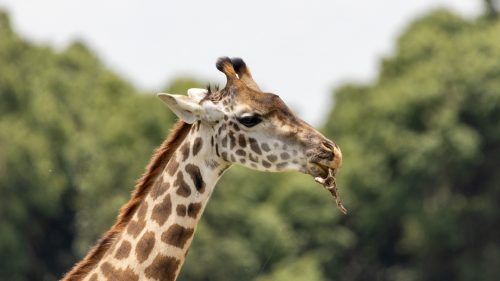
There is a freshness in the air, the landscape vibrant as a result of the recent rains and the Triangle abuzz with activity. One morning, I set out to see how many birds I could spot — before the urge to go in search of the big cats set in. Up first was the red-necked spurfowl feasting on some elephant dung.
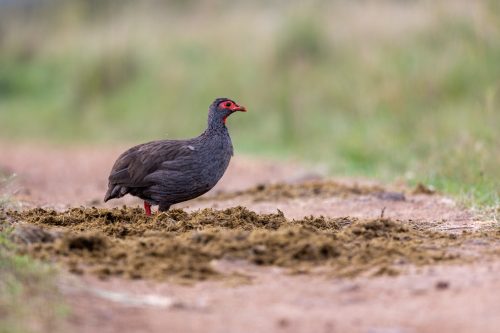
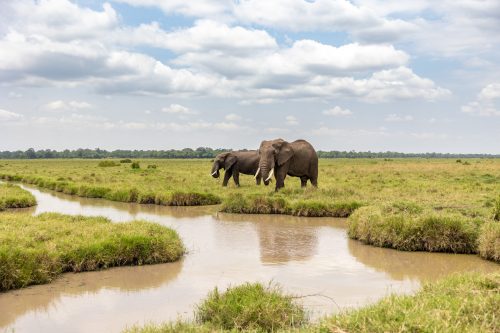
Elephant dung consists of lots of seeds, making it a great source of food for these birds. The red-necked spurfowl tends to move around in pairs or groups and is most active early in the morning and late in the day. They prefer damp environments with thick cover, which can make them fairly difficult to see but, on this day, they were going about their business right on the road.
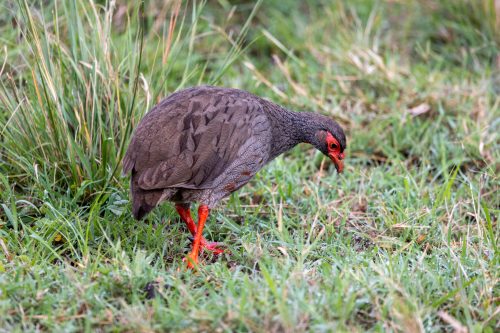
It didn’t take long before the cats came calling. I heard a familiar roar — a lion calling — and quickly drove in the direction it was coming from. It was Doa, one of the Bila Shaka boys; he gave another call and then went back to sleep. As lions do.
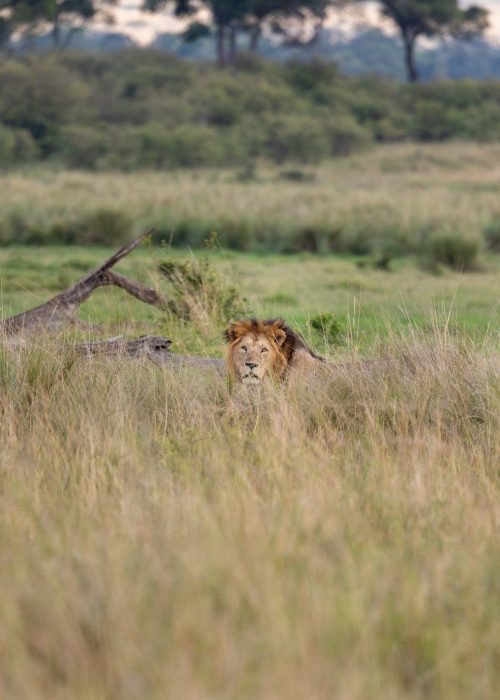
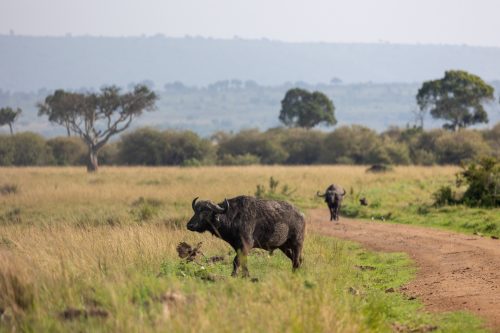
I decided to wait a little longer as there were two buffalo approaching in the distance, totally unaware of the lion’s presence. I thought this had the potential to take a dramatic turn, but as they got closer, the lion lifted his head and the buffalo spotted him. As expected, one ran for dear life but to my surprise, the other stood his ground. He mock-charged the lion with such incredible boldness that the lion quickly walked away from the danger. Buffalo are known to fearlessly defend themselves from predators and can seriously injure weak or inexperienced ones.
It was great to catch up with the Nyati Six this week as we had not seen them together for some time. The five males we saw together had made a wildebeest kill and one of them was mating with a female from the Egyptian Pride. Unfortunately, this means there is a high probability the Nyati Six may have killed the young Egyptian Pride cubs as they were sired by the rival Inselberg Males. We’ve been following the Egyptian Pride for the last couple of weeks in hope of seeing their cubs, but they have been nowhere in sight.
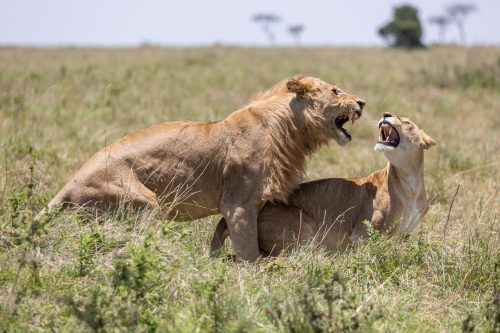
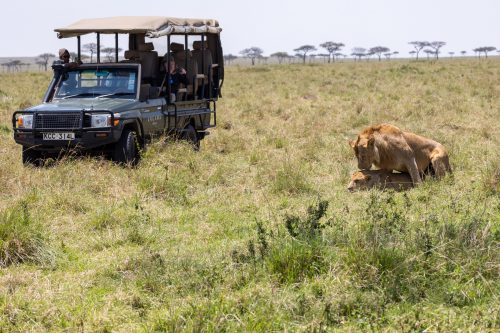
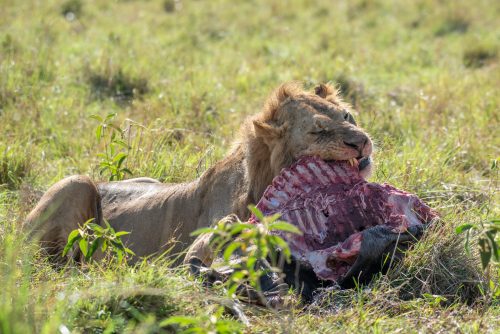
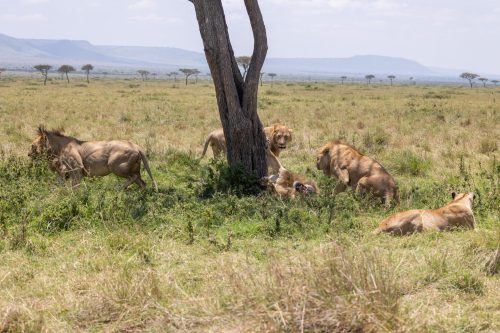
Leopards are elusive animals and can be very tricky to find, especially in this vast landscape. But, when your guide knows where to look, you stand a pretty good chance. Daniel, one of the guides, took us straight to where Nadallah — who is turning into a prolific hunter — had hoisted a gazelle.
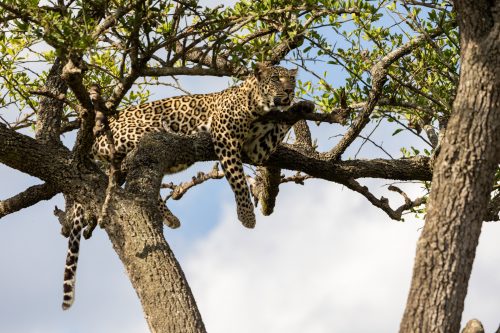
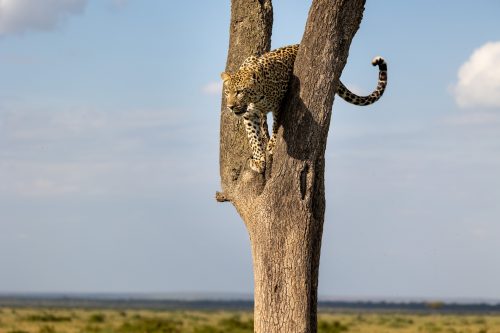
The kill seemed a day or two old, which means she would have stayed in the vicinity until she was done with her meal. We spent some time watching her, but when more vehicles arrived on the scene, she became shy and came down the tree to hide in the nearby shrubs.
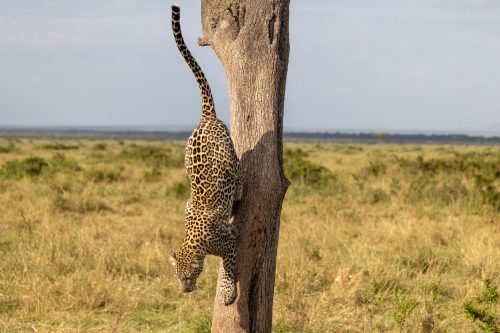
A sighting that had all of us scratching our heads was a giraffe eating bones. When Lemaalo stopped by the Photographic Studio and showed me his images of a giraffe with a bone in its mouth, I was confused. But fortunately, Lemaalo stepped in to school me on osteophagy, a behaviour where animals, mostly herbivores, chew bones to supplement their diet with calcium and phosphorous, which their bodies may need.
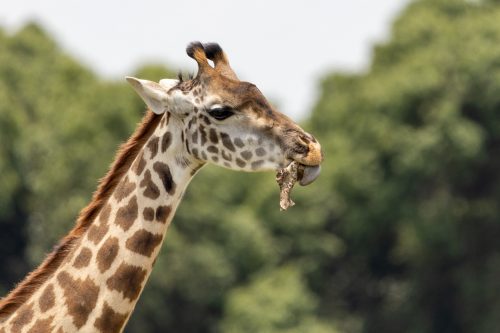
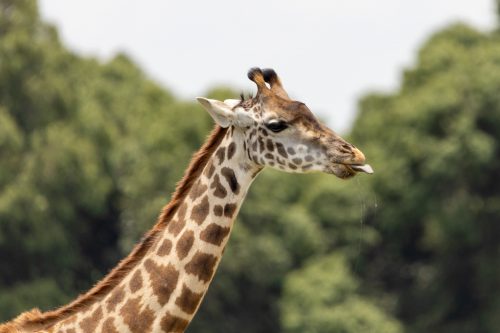
The traffic in the Triangle seems to be clearing up as the mega herds are now heading back to the Serengeti. We can’t promise clear roads just yet, as there are still some herds with ‘delayed visas’ wandering around the Triangle from the Egyptian Pond down towards the border.
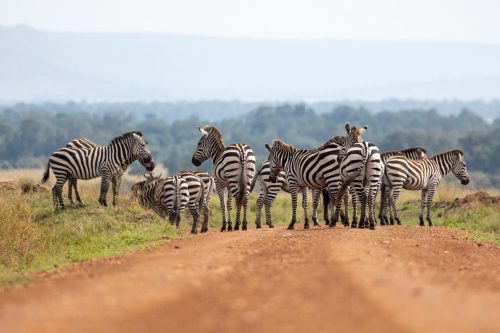
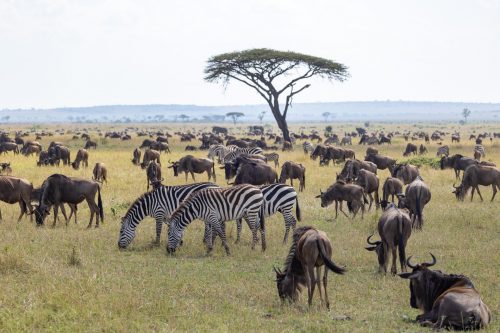
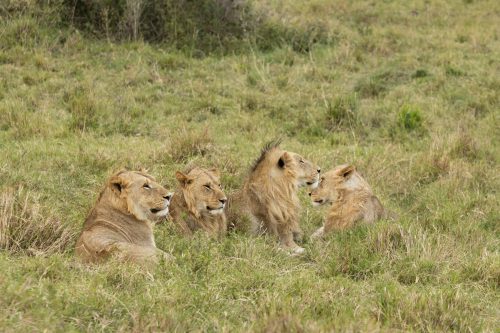
This time last year, the future of what we then knew as the sub-adults from the Sausage Tree Pride was precarious. Their father had been killed by some new males from Lemai and became nomadic overnight. Now we call them the Nyati Six and as evidenced by the above, they seem to be thriving, even amidst powerful and more experienced coalitions.
Filed under: This Week at Angama
Subscribe for Weekly Stories
Comments (0):
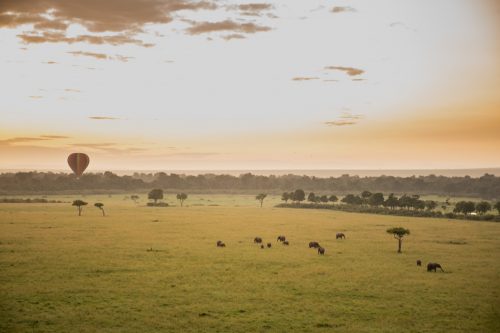
Hot-air Ballooning